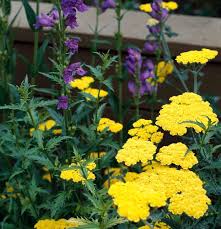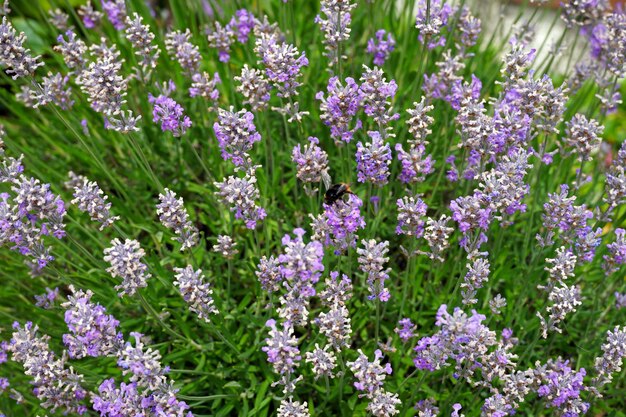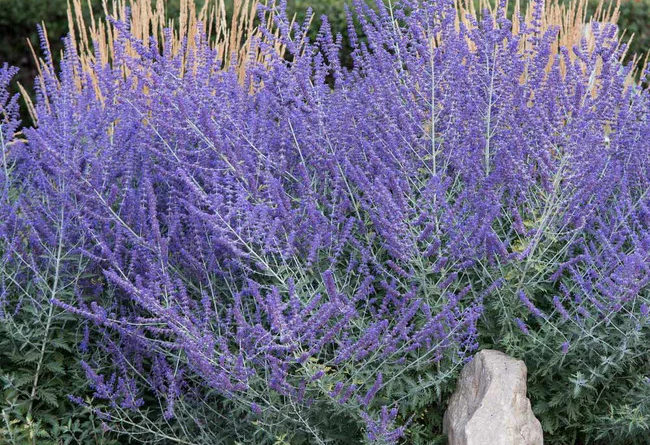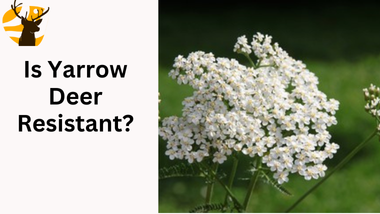Is yarrow deer resistant?
You have probably just chanced on your beautiful and resilient yarrow plant in the backyard and wish it never disappeared?
Unfortunately, you live in a deer-populated area, and you often find yourself wondering, “Is yarrow deer resistant plant, or could my yarrow be on the menu for the neighborhood deer, how do I protect my blossoms and colorful plants from deer?”
It is clear that in areas where deer population is high, gardeners are so concerned about how they will protect their plants from these yard invaders.
To preserve your beautiful garden it is crucial to find attractive yet deer-resistant plants for your garden.
In this guide we shall explore the yarrow deer plant, and why deer may or may not consume these plants.
The Yarrow Plant; Surprising Facts
Yarrow is scientifically known as Achillea millefolium; it is a perennial herb that belongs to the Asteraceae family, commonly referred to as the daisy family. It comes in a bright yellow variety, but it can also be red or pink.

Historically, Yarrow is known to be used for a number of medicinal purposes. The plant has flat-topped or dome-shaped clusters of small white flowers that bloom from April to October.
It is an attractive, hardy perennial with features feathery and aromatic leaves that are deeply cut to give it fern-like appearance
The plant produces flat-topped clusters of small flowers that bloom from April to October, predominantly in white, but also in shades of pink, yellow, and red depending on the variety,
Yarrow has a beautiful nature which makes it very popular in many gardens.
Is Yarrow Deer Resistant?
Yes, Yarrow is deer resistant. Although, a hungry deer will eat just about anything, but yarrow plants repel because of some features, including aromatic foliage, strong fragrance, bitter taste, and potential toxicity.
These plants are widely considered deer resistant plants. But then deer can be unpredictable, especially a hungry deer, these animals can eat deer resistant plants when food is scarce, especially in harsh winters.
Seasonal Behaviours Of Deer Toward Yarrow Plant
Spring and Summer: These periods are mostly full of abundant food and deer have a number of options such as; tender grasses, shrubs and other flowering plants to feed on. But then, in Autumn and Winter, as the temperature drops and food becomes scarce, deer can sample plants they usually avoid and yarrow is no exemption.
Is Yarrow Deer Resistant Completely, Key Limitations To Take Note.
Food Shortage And Severe Hunger
Deer can barely withstand hunger, they become very vulnerable when there is a shortage of food and deer are prone to starvation. They will browse and consume Yarrow.
Individual Deer Preferences
Deer eating habits can vary based on individual deer preferences. While some deer may totally resist Yarrow plants, others may develop a taste for these plants over time, especially if they forage very often yards where Yarrow is present.
Young And Tender Growth Of Yarrow
Deer are naturally attracted to young, tender and softer plants. They are likely to graze on newly sprouted Yarrow.
What Makes A Plant Deer Resistant
Many plants are deer resistance because they have certain characteris that are not appealing to deer; such as
- Taste
Deer are mostly attracted to sweet taste and scented plants, they avoid plants that have bitter taste like Yarrow leaves. They tend to avoid plants with bitter and unpleasant taste.
- Smell
Deer dislike strong scents, yarrow is one of the plants that has a strong and distinct scent that deters deer naturally. Aside from Yarrow, deer disgust other smells such as mint, garlic, hot pepper.
- Texture
Deer will prefer softer and tender plants. They prefer plants whose leaves and stems are somewhat coarse and fibrous, because it makes them harder for deer to chew and digest.
These are the factors that make some plants resistant to deer.
Why Is Yarrow Deer Resistant
Yarrow is widely and generally seen as a deer resistant plant due to some key factors as listed above.
But then, as stated earlier deer may still consume Yarrow for a number of reasons. Below are some reasons why Yarrow may be deer resistant.
Scent
Yarrow has a strong pungent aroma that deer dislike. Deer rely heavily on their sense of smell to select food, and the intense scent of yarrow can deter deer from browsing them.
Potential Toxicity
Although Yarrow is not highly toxic, it contains compounds that can be toxic to deer. This deterrent can make deer avoid them.
Hardy Leaves
Yarrow have a fibrous, hard and hairy leaves that are in contrast to what deer prefer, soft and smooth.
Yarrow is also known to be less nutritious as compared to other deer preferred plants.
Other Deer Resistant Plants
Always remember, “Deer resistant and not deer proof”. Meaning these plants are not deer preferred food, but deer may still nibble and probably eat them.

| Name of Plant | Plant Description | Why it is deer resistant |
| Lavender | Aromatic herb with silver-green leaves and purple flowers, loved for its scent. | It has a strong, soothing scent that appeals to humans and is overpowering to deer. This makes them an excellent choice for garden edges. The high essential oil content also adds a natural barrier. |
| Rosemary | Woody herb with needle-like leaves and small blue flowers. | The woody, needle-like foliage has a powerful aroma and tough texture that deer find unpleasant. Its slightly bitter taste further deters deer from munching on it. |
| Russian Sage | Tall perennial with silvery stems and purple-blue flowers | Russian sage has a robust fragrance that repels deer, and its leaves contain compounds that deer avoid. Its slightly bitter taste adds another layer of protection |
| Boxwood | Dense evergreen shrub with small, glossy leaves. | Tough leaves and a bitter taste make it unattractive to deer |
| Marigold | Bright orange and yellow flowers with a distinct, somewhat spicy scent. | The spicy, peppery scent of marigolds is unappealing to deer and masks the smell of nearby plants. Their leaves also have a strong, slightly bitter taste, making them a natural deterrent. |
| Foxglove | Biennial plant with tall spikes of tubular flowers in various colours.. | Toxic properties discourage deer from eating it; it may cause illness if ingested. |
| Bee Balm | Perennial with vibrant red, pink, or purple flowers that attract pollinators. | Pungent, mint-like scent and texture discourage deer. |
| Lamb’s Ear | Low-growing perennial with soft, fuzzy, silvery leaves | Fuzzy texture and mild astringency make it unappealing for deer to chew. |

You can find more information on deer and Yarrow relationship.
To conclude,
Now let’s reflect on our question, Is Yarrow deer resistant? Yes, Yarrow is a deer resistant plant. It contains some factors that deter deer from consuming it.
But it is important to note that, though Yarrow is deer resistant but not deer proof. Which means deer can be tempted to consume Yarrow based on some certain factors.
In addressing our question we have provided information on what makes plants deer resistant, why is yarrow deer resistant and finally some deer resistant plants.
You still need to protect your Yarrow as some other animals may consume it, and even deer in hash times. Find more information about deer lifestyle on the deer hunting gateway.








